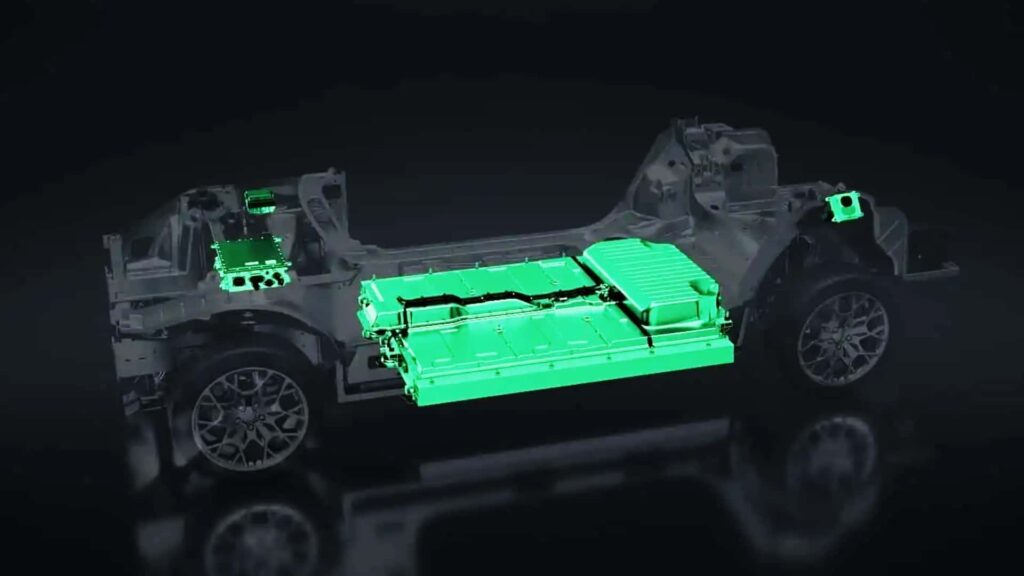However, researchers at the UChicago Pritzker School of Molecular Engineering are taking a different approach. They are proactively designing a solution to the looming environmental crisis posed by EV batteries. By creating batteries that do not rely on harmful PFAS chemicals, they are paving the way for a more sustainable future.
The demand for lithium-ion batteries is skyrocketing, driven by the rapid growth of electric vehicles and various other applications. However, the dirty secret of these batteries containing harmful chemicals like PFAS has largely been overlooked. PFAS are known as “forever chemicals” because they do not break down in the environment and can persist for long periods, posing risks to both ecosystems and human health.
The researchers at the University of Chicago recognized the urgent need to address this issue. By developing a special “non-fluorinated solvent” free of PFAS for the electrolyte in their batteries, they have taken a significant step towards creating a safer alternative. This innovative approach not only eliminates the environmental risks associated with PFAS but also enhances the performance of the batteries.
In laboratory experiments, the PFAS-free cells demonstrated superior ion-pairing, making them more energy-dense. They also exhibited increased resistance to extreme temperatures and better capacity retention, indicating a longer lifespan and sustained high performance. While these batteries are still in the experimental phase, the results are promising and highlight the potential for addressing environmental concerns at the design stage.
As the electric vehicle industry continues to grow, the proper disposal and recycling of end-of-life batteries will become crucial. The risk of contamination from PFAS and other harmful chemicals is significant, and without proper handling, the environmental and health consequences could be severe. By developing batteries that do not rely on these toxic substances, the researchers at UChicago are setting a new standard for sustainable battery design.
While the current trend in the EV industry prioritizes speed and market dominance, the UChicago researchers are focused on long-term sustainability. By addressing the environmental impact of batteries early on, they are laying the foundation for a cleaner and safer future. As the transition to electric vehicles accelerates, innovations like these will be essential in mitigating the environmental footprint of this growing industry. As the world continues to shift towards electric vehicles (EVs) and renewable energy sources, the spotlight is on battery technology. While EVs offer a cleaner and more sustainable alternative to traditional vehicles, the production and disposal of batteries come with their own set of challenges.
Recent research has brought to light the presence of “forever chemicals” in EV batteries. These chemicals, known as per- and polyfluoroalkyl substances (PFAS), are persistent in the environment and have been linked to a range of health issues. With the growing demand for EVs, it is crucial to address these concerns and ensure that future battery developments take a more cautious and eco-friendly approach.
One solution to this issue is the implementation of stricter regulations. By enforcing guidelines that limit the use of PFAS in battery production, manufacturers can reduce the environmental impact of their products. Additionally, companies can invest in research and development to find alternative materials that are both effective and environmentally friendly.
Another approach is to improve the recycling and disposal processes for EV batteries. By implementing proper recycling programs, we can ensure that valuable materials are recovered and reused, reducing the need for new raw materials. This not only minimizes waste but also reduces the potential for harmful chemicals to leach into the environment.
Overall, it is essential for the industry to prioritize sustainability and responsible practices in battery production. With stricter regulations and innovative solutions, we can pave the way for a cleaner and greener future. By taking proactive steps now, we can ensure that the transition to EVs is not only beneficial for the environment but also for the health and well-being of future generations.

